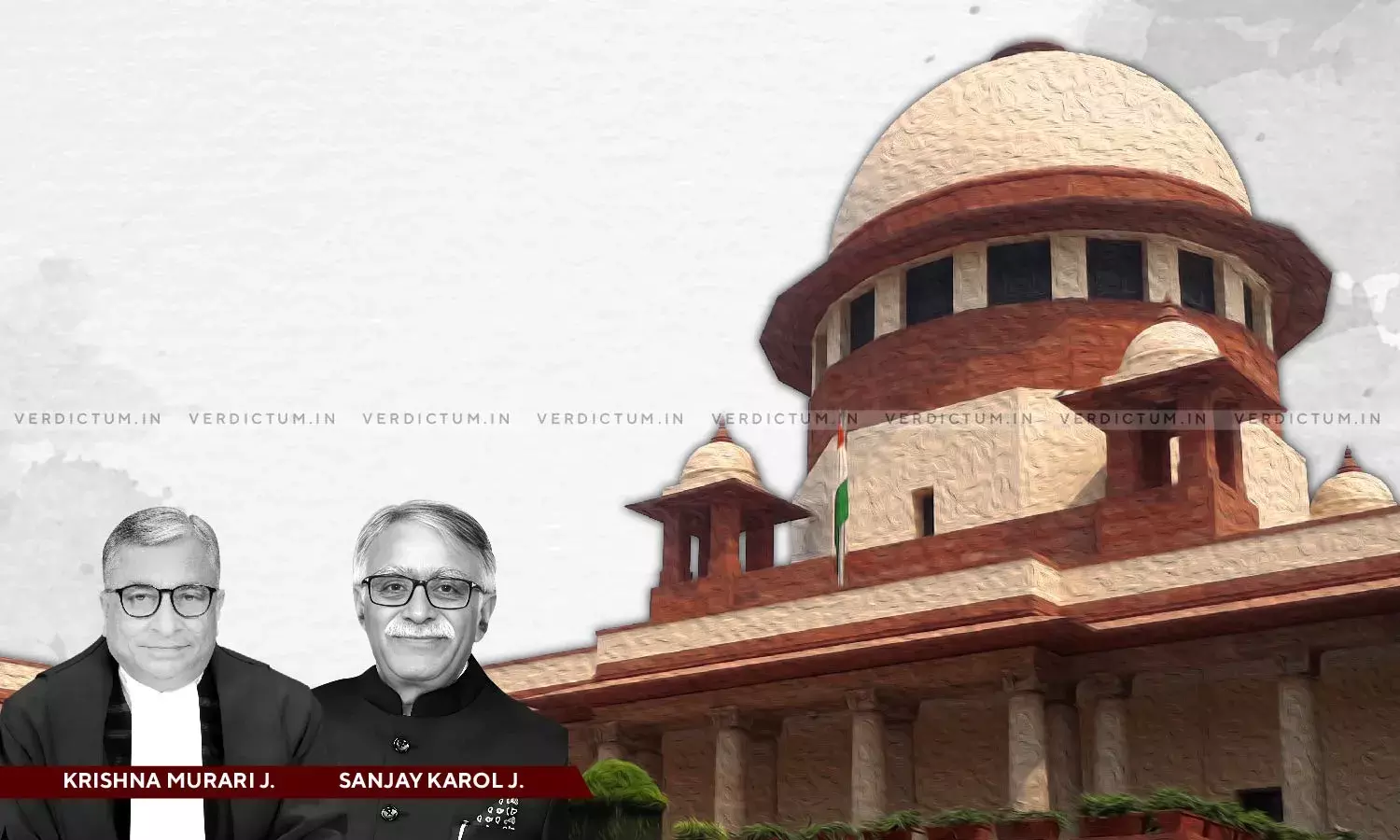Dismissal Of Special Leave Petition By Way Of A Non-Speaking Order Does Not Attract Doctrine Of Merger: Supreme Court Reiterates

The Supreme Court in a case relating to will has reiterated that dismissal of a Special Leave Petition by way of a non-speaking order does not attract the doctrine of merger.
The two-Judge Bench comprising Justice Krishna Murari and Justice Sanjay Karol noted, “…. the dismissal of Special Leave Petition by way of a non-speaking order does not attract the doctrine of merger. … In simpler terms, this would essentially mean that even in cases where the Special Leave Petition was dismissed as withdrawn, where no reason was assigned by the Court while dismissing the matter and where leave was not granted in the said Special Leave Petition, the said dismissal would not be considered as laying down law within the ambit of Article 141 of the Constitution of India.”
The Bench said that if a dismissal of a Special Leave Petition by way of a non-speaking order is not considered law under Article 141 of the Constitution of India, the same also cannot be considered as res judicata.
Advocate Awantika Manohar appeared on behalf of the appellants while Advocate Nishant Ramakantrao Katneshwarkar appeared on behalf of the respondents.
In this case, the appeals were preferred against the judgment passed by the Karnataka High Court whereby the appeal and review filed by the appellants were dismissed. A man was the original owner of a property and had two daughters. Before his death, he executed a will in favour of his daughters in equal share, and in the said will, it was stated that both the legatees were to enjoy the property during their entire lifetime and then be transferred to their respective male heirs.
After the death of the aforesaid man, the will was probated and a lease deed was executed in favour of a trust for a period of 45 years, and during the tenure of the same, one of the daughters passed away. After her death, a dispute arose between her heirs on account of which a suit was filed for the partition and possession of part of the property. The matter was however settled by the parties but then the sons of the other daughter filed a suit against their mother and her sister’s sons seeking an injunction which was rejected by both Trial Court and High Court.
The Supreme Court in view of the above facts observed, “… even in cases where the dismissal is by way of a withdrawal, the remedy of filing a fresh Special Leave Petition would still persist. Further, if on the said reasoning, a remedy to file a review in the High Court is allowed, then the same reasoning cannot arbitrarily exclude the filing of a subsequent Special Leave Petition.”
The Court further noted that to put a quietus to such an issue, it is necessary for the same to be adjudicated and deliberated upon by a larger bench of the Court.
“We are painfully aware of the fact that such an interpretation, if expanded beyond the specific scope of filing a review in the High Court is allowed, it would open the floodgates of litigation, and would essentially mean that every dismissal of Special Leave Petition must be accompanied with reasons declaring the same”, said the Court.
The Court concluded that since only after a preliminary objection is decided, can the merits of the present case be entered into, the same is to be placed before an appropriate bench after the question of law is decided by the larger bench.
Accordingly, the Court placed the papers of the case before the Chief Justice of India for constituting a larger bench.
Cause Title- S. Narahari & Ors. v. S.R. Kumar & Ors.


